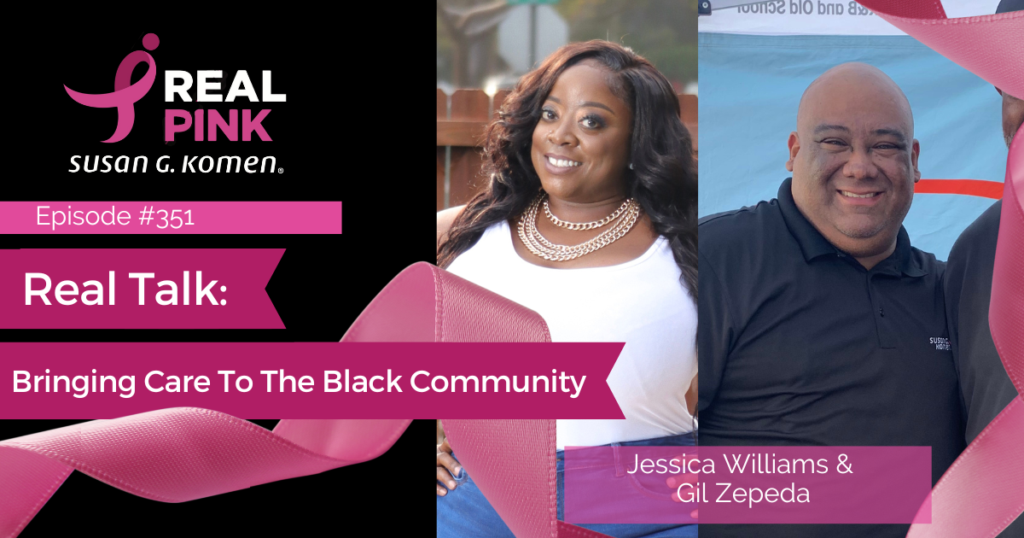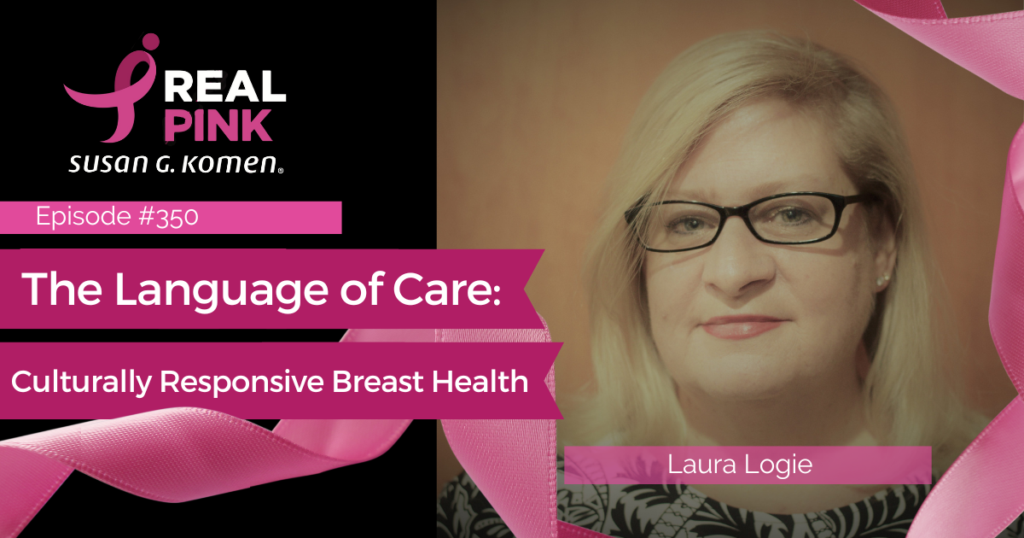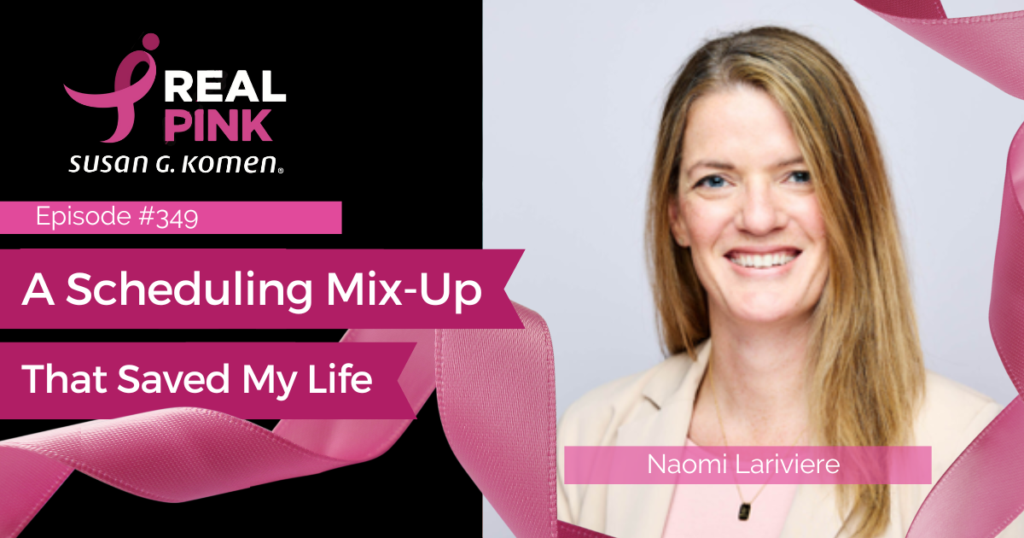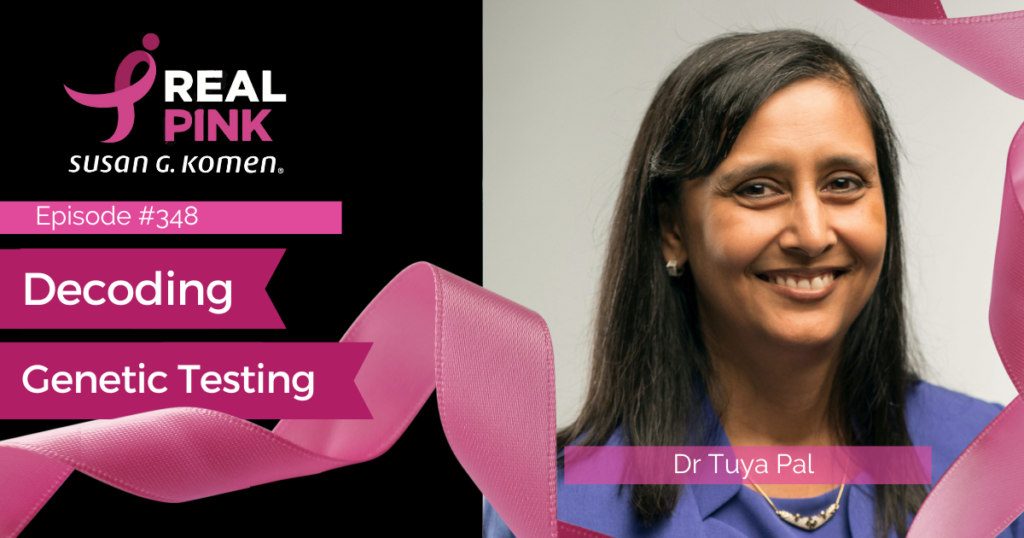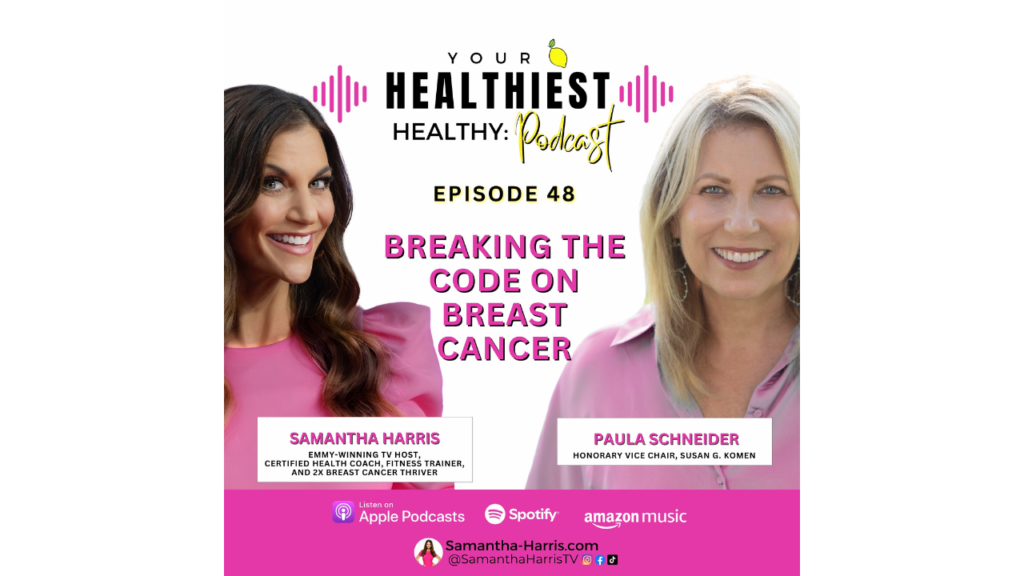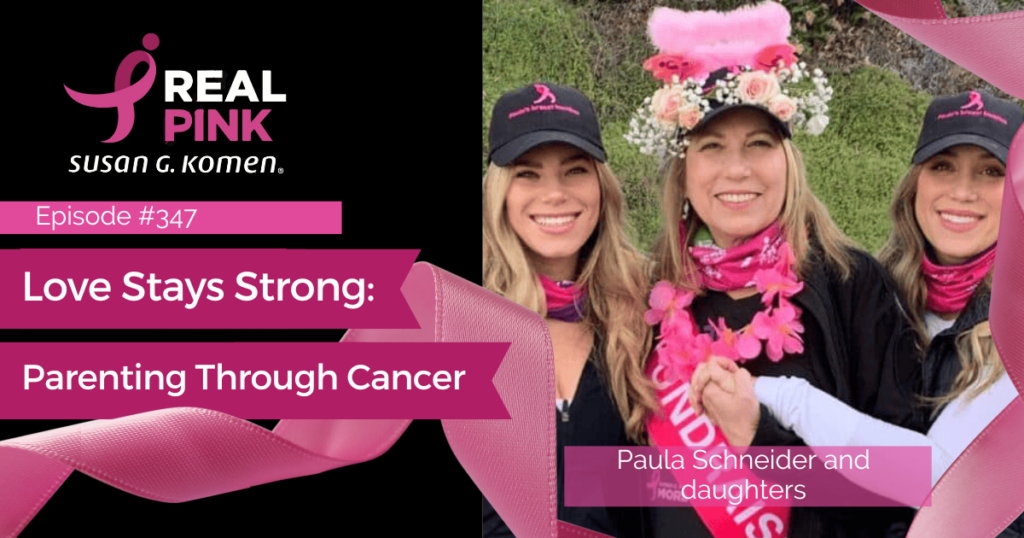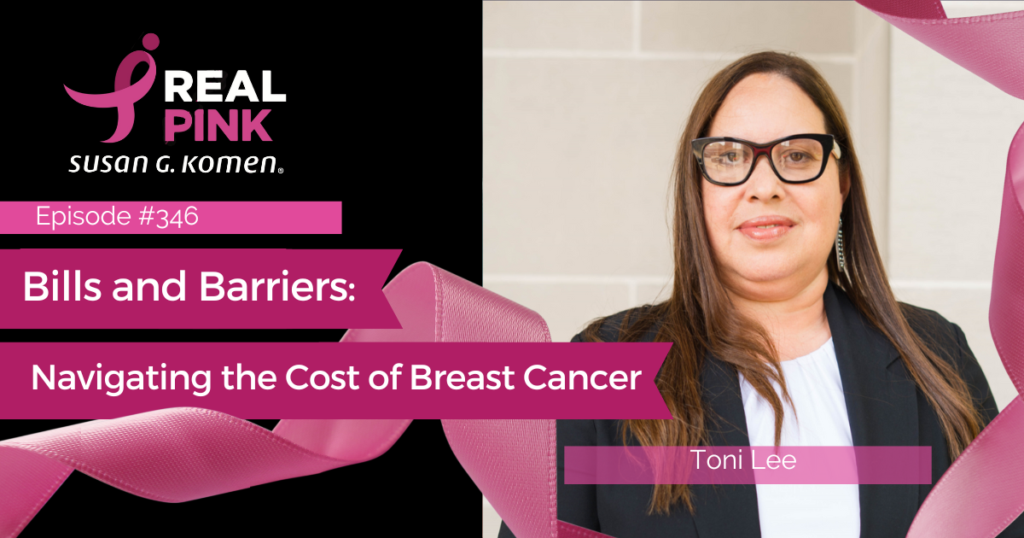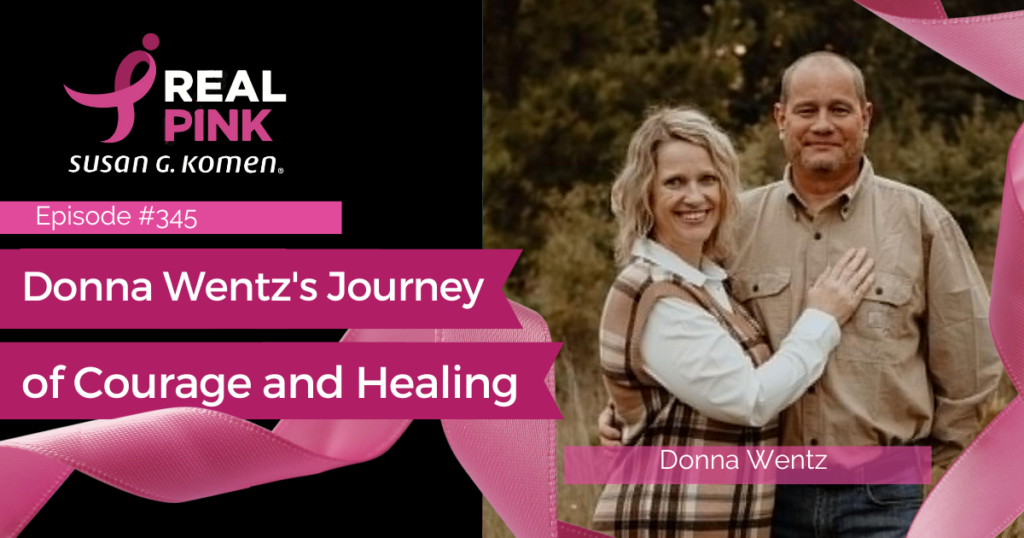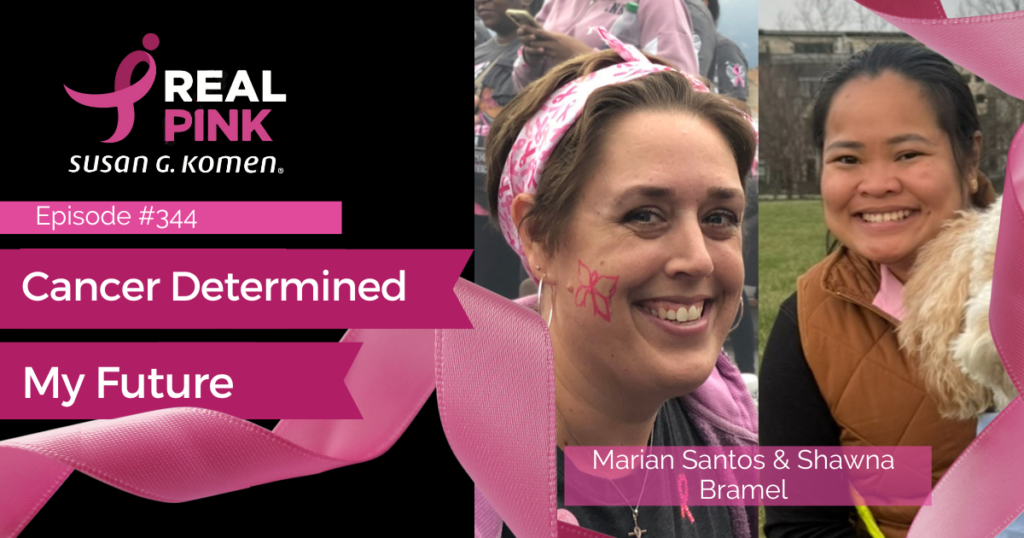Posts by grant
Real Talk: Bringing Care To The Black Community
Breast cancer affects everyone differently. African American and Black women are 40% more likely to die from breast cancer than white women. Biology and genes are driving factors, but we cannot overlook the fears and concerns women in these communities have when it comes to seeking medical care. Mistrust, bad experiences and deep-rooted bias are all standing in the way of saving more lives from breast cancer.
Today, we’re joined by Jessica Williams, a leading and powerful voice in the Black community in South Florida. And Gil Zepeda, the Development Manager of Susan G. Komen in Florida. Jessica and Gil just took part in an event that brough mobile mammography to an underserved neighborhood in South Florida.
Read MoreThe Language of Care: Culturally Responsive Breast Health
During Hispanic Heritage Month, we reflect not only on cultural pride but also on the urgent health challenges facing the Latino community. Breast cancer is the most commonly diagnosed cancer among Latinas, and yet barriers such as language, limited access to care and cultural stigma often prevent women from receiving the support they need. In this episode of Real Pink, we’re joined by Dr. Laura Logie of Nueva Vida, a trusted partner of Susan G. Komen® and a member of the ShareForCures® Alliance. Together, we’ll explore how culturally responsive care can transform the breast cancer experience, break down barriers and ensure that Latinas feel seen, heard and supported every step of the way.
Read MoreA Scheduling Mix-Up That Saved My Life
Naomi’s story is a powerful reminder of how something as simple as a routine mammogram—and even a scheduling mix-up—can change the course of your life. In this conversation, she opens up about her breast cancer journey, the impact it’s had on her career, her family, and her outlook on life, and why she’s passionate about encouraging others to take that potentially life-saving 15 minutes to get screened.
Read MoreDecoding Genetic Testing
Did you know that in some families with a history of prostate cancer, the women may have an increased risk of breast cancer? People with one or more first-degree relatives (father or brother) who have had prostate cancer may have an increased risk of breast cancer, especially if the prostate cancer was diagnosed at a young age. This also works in reverse with a family history of breast cancer. This increased risk is likely due to inherited gene mutations. We are lucky to be joined today by genetic testing expert, Dr. Tuya Pal. Dr. Pal is here to discuss the importance of early detection and to decode some common questions surrounding genetic testing.
Read MoreYour Healthiest Healthy: Breaking the Code on Breast Cancer
Today, we are sharing an episode of Your Healthiest Healthy, in which our Honorary Vice Chair, Paula Schneider, made an appearance. In the episode, she discusses her cancer journey, the current landscape, and Paula’s new book, Love Stays Strong, which is out today, September 2.
Read MoreLove Stays Strong: Parenting Through Cancer
We are happy to welcome back the Honorary Vice Chair of Susan G. Komen, Paula Schneider, and today she is also joined by her two daughters Zoe and Chloe. Paula faced a triple-negative breast cancer diagnosis in 2007 – after losing her mother to metastatic breast cancer years before. It goes without saying that Paula’s work is beyond personal. Since joining Komen in 2017, Paula has helped the organization usher in new programs, support services and policies that are helping families have a better chance of survival and a greater quality of life. This year, Paula has also published a children’s book inspired by her own breast cancer experience – which drops THIS WEEK on Sept. 2nd. Love Stays Strong is a book about the strength of a family’s love, especially during times of illness – designed to help parents or caregivers talk to young children about any kind of serious illness in the family.
Read MoreBills and Barriers: Navigating the Cost of Breast Cancer
A breast cancer diagnosis can bring more than just emotional and physical challenges — it can also create a heavy financial burden. From the cost of treatment to lesser-known expenses like transportation, childcare and lost wages, the impact can be overwhelming. In this episode of Real Pink: Health Equity Revolution, we’re joined by Toni Lee, Senior Manager of Susan G. Komen’s Patient Care Center. Toni shares powerful insights about the real costs of breast cancer, how Komen supports patients financially — even when the Financial Assistance Program is closed — and how trained patient navigators can help individuals access the resources they need to reduce the burden. If you or someone you love is navigating breast cancer, this episode will leave you feeling seen, supported and empowered.
Read MoreDonna Wentz’s Journey of Courage and Healing
Donna Wentz is marking a remarkable milestone — 10 years with no evidence of breast cancer. Her journey began at just 39 years old, when she received the life-changing diagnosis of estrogen receptor-positive breast cancer. Faced with fear and uncertainty, Donna leaned on the unwavering support of her family, friends, and colleagues. Their encouragement carried her through the challenges of surgery, treatment, and recovery, helping her find strength she didn’t know she had. Today, she reflects not only on surviving, but on the resilience, gratitude, and deeper connections that emerged from her experience.
Read MoreReal Talk:Cancer Determined My Future
Life changes in a split second when you hear the words, “you have breast cancer.” Shawna Bramel and Marian Santos know this personally. Shawna was diagnosed after having her first child, completely upending her family’s plans for more children. Marian was diagnosed at a time when she should have been thinking about her future, planning a family and focusing on preserving her reproductive health. Both ladies struggled mentally, emotionally and physically with their diagnoses and are joining us today to share more.
Read MoreBreast Cancer in Younger Women
You may have heard in the news that younger women are being diagnosed with breast cancer at higher rates than before. While women under 40 only account for 4% of breast cancer cases in the U.S., even a modest rise in breast cancer incidence is a call to action for young women to understand their personal risk and to know what’s normal for their breasts so they can be aware of any changes that should be reported to a health care provider. Joining us on the show today is Dr. Virginia Borges, a medical oncologist at the University of Colorado, whose research focuses on young women’s breast cancer. Dr. Borges is committed to finding answers and today will share what is being studied, as well as how young women can be empowered to take charge of their breast health early.
Read More
